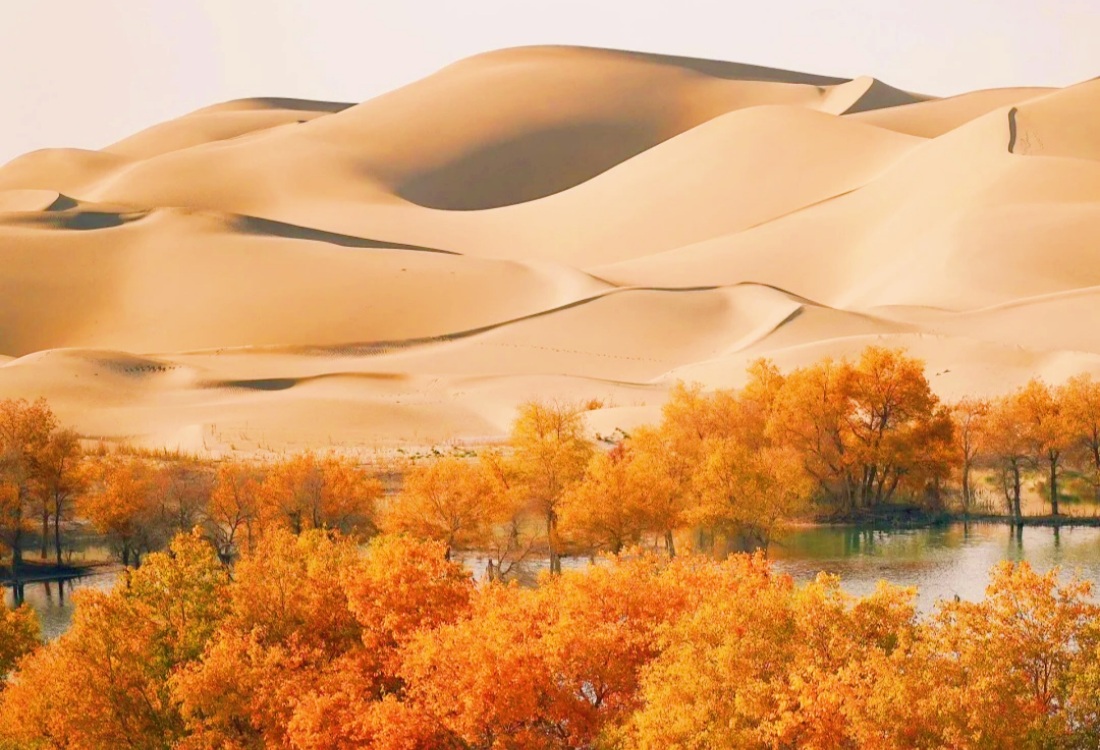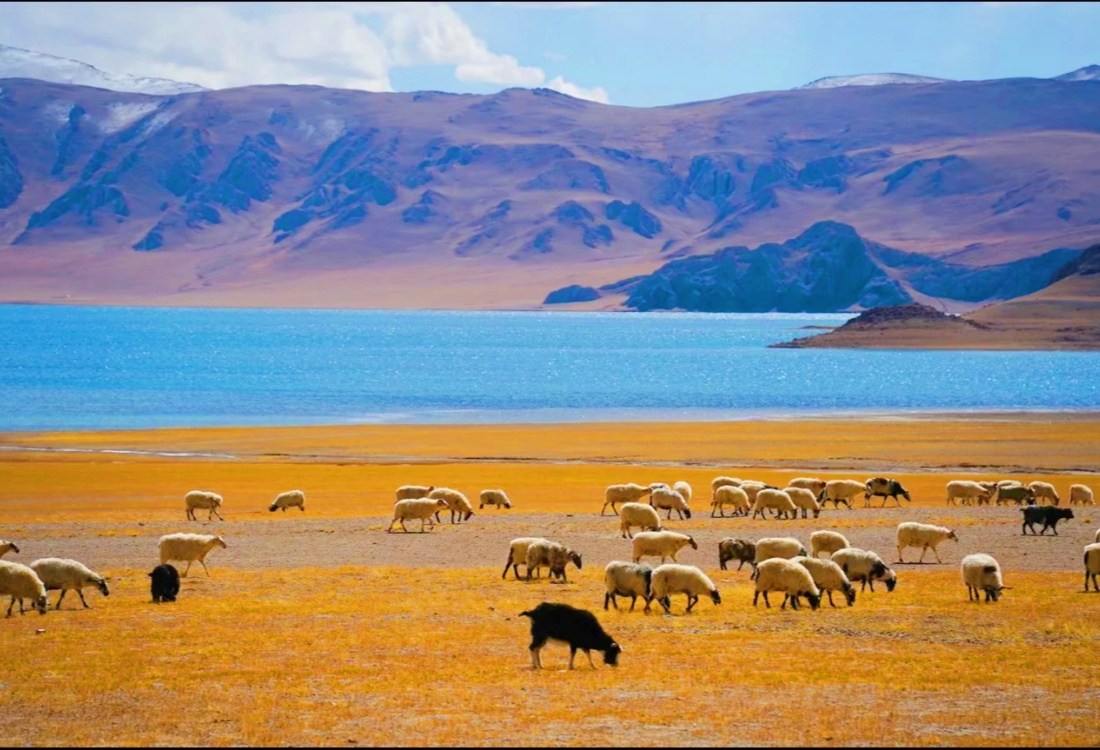Table of Contents
ToggleThe Silk Road, an ancient network of trade routes connecting the East with the West, is a treasure trove of historical landmarks, vibrant cultures, and awe-inspiring landscapes.
While the summer months draw many travellers, autumn is arguably one of the best times to explore the Silk Road. With cooler temperatures, stunning autumn colours, and fewer crowds, this season offers a truly magical experience. From the bustling bazaars of Central Asia to the desert oases of China, autumn on the Silk Road promises an unforgettable journey.
Here’s your expert guide to the best places to visit along the Silk Road in autumn.
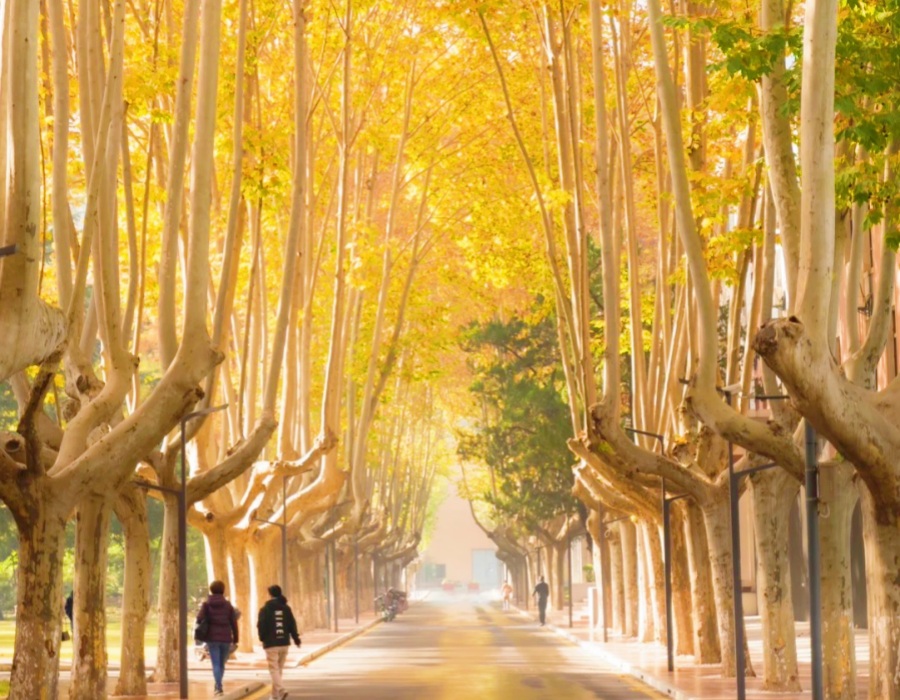
What’s Autumn Weather Like on the Silk Road?
Autumn (September to November) is a delightful time to visit the Silk Road. The weather is cooler and more comfortable, with temperatures typically ranging from 10°C to 25°C (50°F to 77°F), depending on the region. In cities like Samarkand and Bukhara, the heat of the summer has faded, and the days are warm, while the evenings can be chilly. The high-altitude areas, such as the Tianshan Mountains or the Pamirs, offer crisp, fresh air and vibrant autumn foliage. The dry conditions make for excellent sightseeing, as the landscapes are clear, and the atmosphere is perfect for exploring the vast cultural and historical riches of the region.

What to Wear and Pack for Autumn on the Silk Road
For an autumn trip along the Silk Road, pack layered clothing—mornings and nights are chilly while afternoons can be warm. Bring a light down jacket, sweaters, and long-sleeve shirts. Comfortable walking shoes are essential for exploring historical sites. Don’t forget sunglasses, sunscreen, and a hat for daytime sun, especially in desert areas. A scarf or buff helps with dust and wind. Also carry a daypack, reusable water bottle, and moisturiser for the dry climate.
Top Attractions to Visit on the Silk Road During Autumn
Autumn is the perfect time to explore the rich tapestry of the Silk Road, where golden leaves, clear skies, and cooler temperatures combine to enhance your experience. The following destinations offer some of the most captivating attractions to visit during the autumn months.
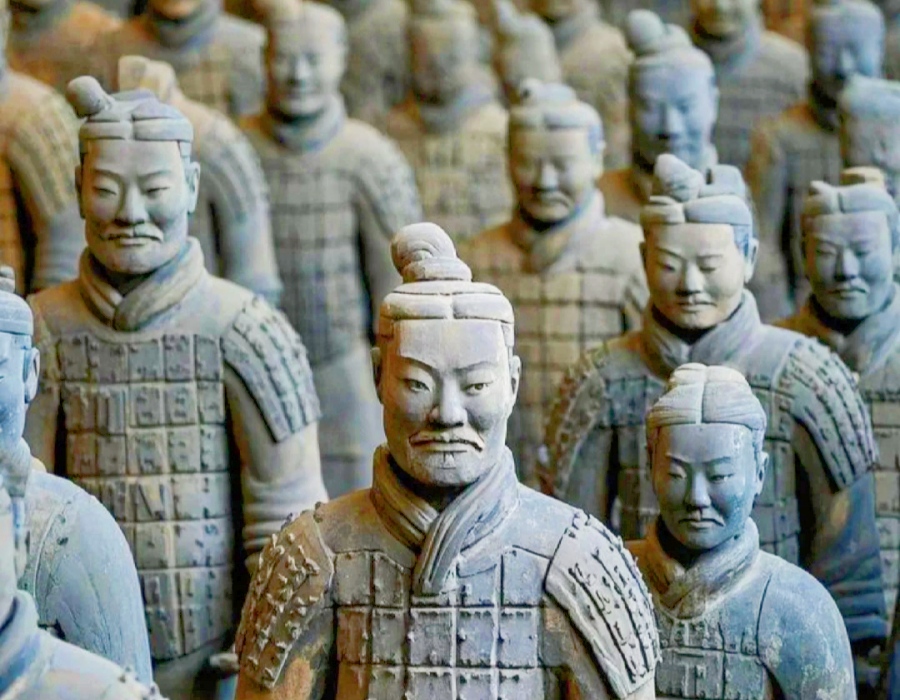
Xi’an: The Historic Gateway to the Silk Road
Xi’an, the ancient capital of China, is the eastern starting point of the Silk Road and an essential destination for any traveller exploring this legendary route. Autumn in Xi’an is the perfect time to visit its iconic landmarks, including the Terracotta Army, the Big Wild Goose Pagoda, and the ancient city walls. The cooler temperatures make it more comfortable to explore these sites, and the changing foliage around the city adds to the beauty. The Muslim Quarter, with its vibrant markets and delicious street food, is also especially lively during autumn, as the cooler weather draws both locals and tourists out into the streets.
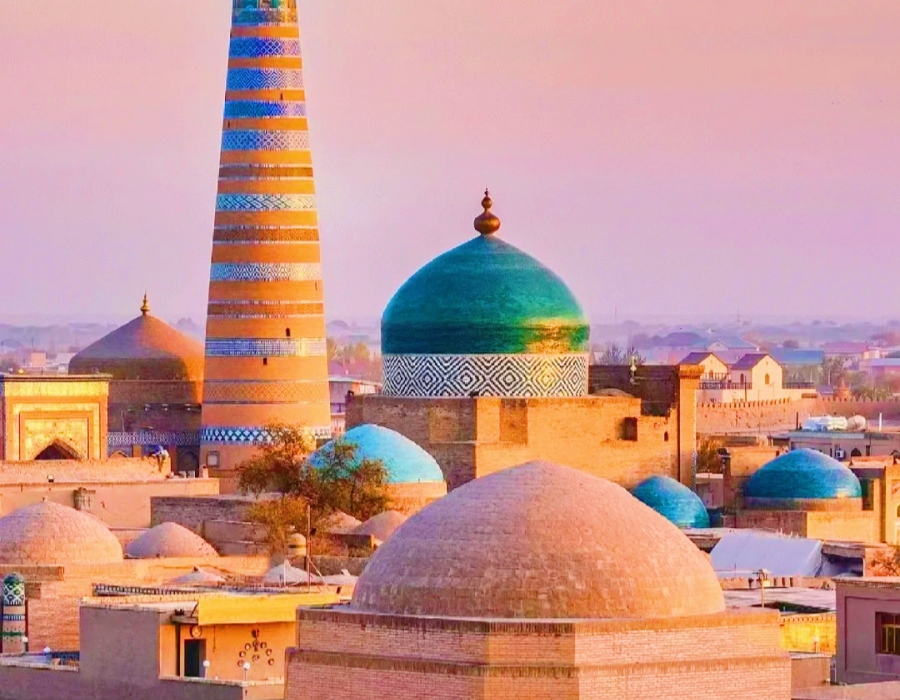
Samarkand: The Heart of Central Asia’s Silk Road
Samarkand, a jewel of the Silk Road, is a must-visit destination in autumn. The city’s Registan Square, surrounded by beautiful madrasas and minarets, takes on a golden hue as the autumn leaves frame the blue-tiled buildings. The weather in autumn is ideal for exploring Samarkand’s majestic landmarks, such as the Shah-i-Zinda Necropolis and the Bibi-Khanym Mosque. The cooler temperatures make it more pleasant to stroll through the city’s gardens and bazaars, and the traditional autumn harvest festivals provide a unique opportunity to experience the local culture and cuisine at its finest.
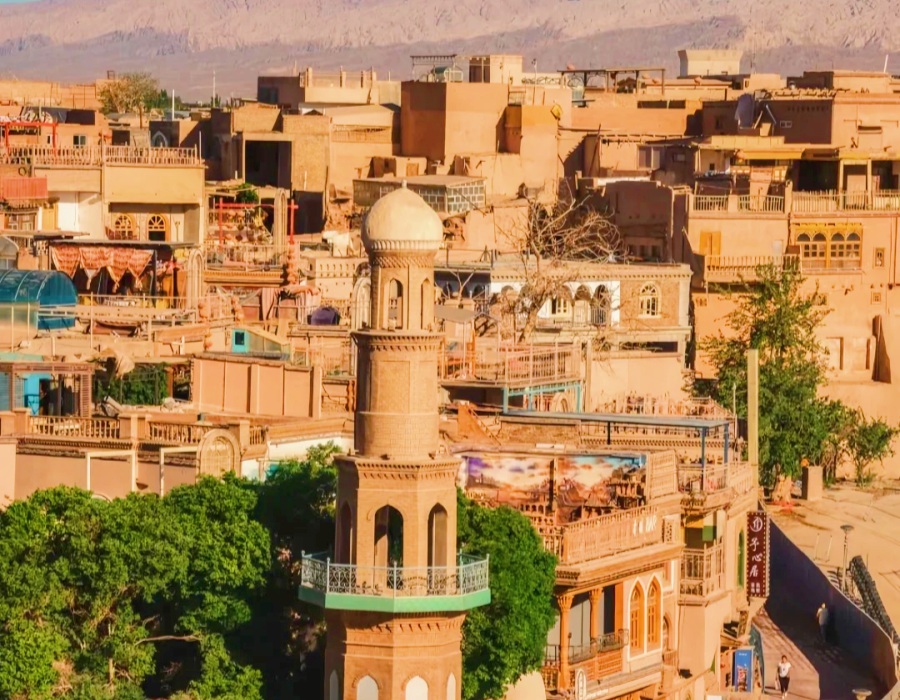
Kashgar: The Cultural Crossroads of the Silk Road
Kashgar, located in the far western part of China’s Xinjiang province, is one of the most unique and culturally rich cities on the Silk Road. Autumn in Kashgar offers crisp, cool air and vibrant colours in the surrounding landscapes, creating a stunning backdrop for exploring the city’s ancient sites. Visit the Id Kah Mosque, the largest mosque in China, and the nearby Old Town, which boasts traditional Uyghur architecture and a rich history. The Kashgar Bazaar, especially during the autumn harvest, is a vibrant experience, where traders from across Central Asia gather to sell their goods. The nearby Karakoram Highway, which links China to Pakistan, offers breathtaking views of the surrounding mountains, with the fall foliage adding to the scenery.
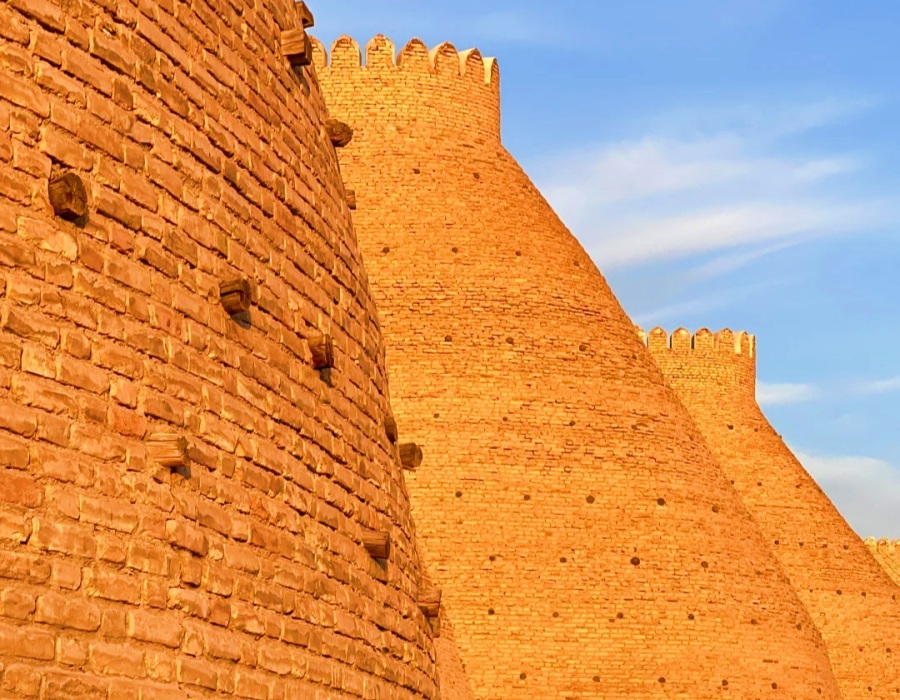
Bukhara: A Timeless Oasis in the Desert
Bukhara, another UNESCO World Heritage site along the Silk Road, offers an atmospheric blend of history, culture, and architecture. Autumn is the perfect time to visit Bukhara, as the desert heat fades and the city becomes more comfortable for sightseeing. Wander through the well-preserved madrasas, mosques, and caravanserais, and explore the bustling bazaars where you can shop for spices, carpets, and textiles. The cooler weather is ideal for visiting the Ark Fortress, the Bolo Haouz Mosque, and the beautiful Chor-Minor. Bukhara’s old town is especially picturesque in autumn, with its narrow streets and courtyards lined with golden trees.
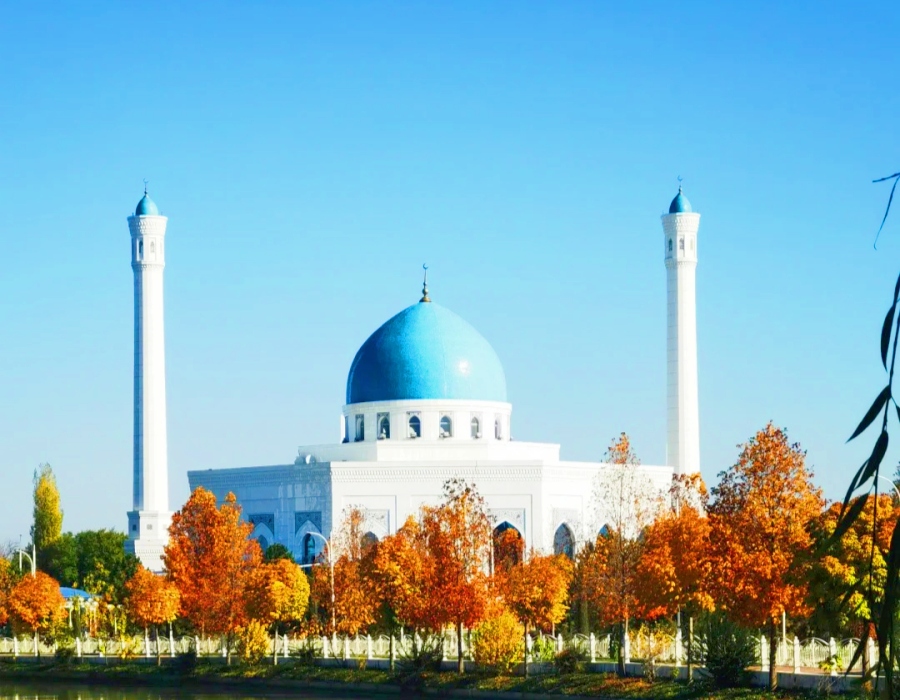
Tashkent: A Blend of Modernity and Tradition
Tashkent, Uzbekistan’s capital, offers a fascinating mix of modern and traditional Silk Road influences. Autumn is an excellent time to visit Tashkent, as the weather is mild, and the city’s parks and gardens are in full bloom with the colours of fall. Key sites include the Khast Imam Complex, which houses ancient manuscripts like the Quran of Caliph Uthman, and the bustling Chorsu Bazaar, where you can shop for spices, fresh fruits, and handicrafts. Tashkent also boasts numerous mosques, madrasas, and contemporary art galleries that reflect the city’s blend of ancient Silk Road heritage and modern development.

Merv: The Ancient Oasis of Turkmenistan
Merv, once a bustling metropolis on the Silk Road, is now a UNESCO World Heritage site offering a glimpse into the past. In autumn, the weather in Merv is cool and pleasant, making it the perfect time to explore the ruins of this ancient oasis city. Visit the city’s monumental gates, the impressive mausoleums, and the remains of caravanserais that once welcomed traders along the Silk Road. The surrounding Karakum Desert provides a dramatic backdrop, and the autumn colours enhance the ancient ruins, offering a unique perspective on this once-thriving city.
Things to Keep in Mind When Visiting the Silk Road in Autumn
Pack for Cooler Weather
While autumn offers more comfortable temperatures compared to the summer heat, it’s important to bring layers, as the weather can vary greatly depending on the altitude and region. Light clothing for the daytime, along with a jacket or sweater for cooler evenings, will ensure you’re comfortable while exploring the Silk Road.
Embrace Local Harvest Festivals
Autumn is harvest time along the Silk Road, and many regions host local festivals celebrating the season’s bounty. Whether you’re in Samarkand, Bukhara, or Kashgar, be sure to experience the local autumn harvest festivals, where you can enjoy traditional foods, music, and cultural performances. These events offer an authentic glimpse into the daily life and rich traditions of the Silk Road communities.
Why Autumn is the Best Time to Visit the Silk Road
Autumn (September to November) is an ideal time to visit the Silk Road, as the weather is cooler, and the landscapes are at their most beautiful with the changing colours of the season. It’s also a quieter time compared to the summer months, meaning you can enjoy popular sites with fewer crowds.

